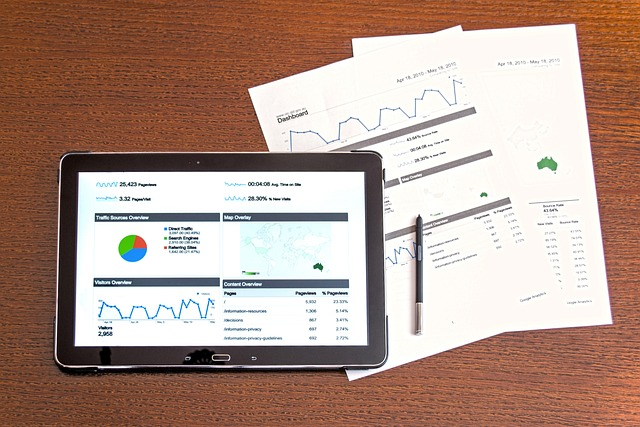Whether you’re new to property investing, or an experience investor, you might be wondering if commercial property continues to be a good investment, and how it stacks up to other investment opportunities?
Take aways:
-
All investments have risks – commercial property is no different.
-
Market research is key before jumping in – both marco-trends and local conditions.
-
Ensure you build a cash flow forecast for the commercial property you have in mind.
-
Commercial property as an investment can attract lucrative returns and yield.
-
Work with professional business finance brokers to ensure you know exactly what you’re getting into.
Is it safe to invest in commercial property?
All investments carry risk. Commercial property is no different to residential property.

While investing in commercial property in Australia can offer opportunities for income and capital growth, it’s essential to carefully assess the risks and weigh them against the potential rewards to make informed investment choices.
Some of the factors experienced commercial property investors consider before making investments include:
Economic conditions for commercial property
As an investor, it’s always important to research and understand state of the Australian economy. “Look at data points such as GDP growth, inflation rates, employment levels, and interest rates” says Co-Founder and Business Finance Broker Nadine Connell of Smart Business Plans. “It’s important to understand how a stable the economy is today, and what trends are expected into the future.”
Market trends in commercial investment
Research market trends in areas such as commercial property leases, including vacancy rates, rental yields, and property values in the specific location you’re considering.
Understanding the supply and demand dynamics will be important to gauge the potential profitability of your investment over time, property value, and access to commercial tenants. The Reserve Bank of Australia is a great source of data, showing trends analysis such as retail and office attendance data.
Regulatory environment for Australia commercial property
Ask professional in the space if they are aware of any regulatory changes or government policies may impact the commercial property market or residential property market, such as zoning laws, tax regulations, or lending restrictions.
Reach out to your local representative who may be aware of any changes that would effect commercial yields, lease agreements, potential tenants or commercial demand.
Tenant demand for commercial leases and office premises
Consider the demand for commercial properties in your target market, as well as how easy it might be to attract quality tenants.
Factors such as population growth, demographic trends, and industry developments can influence tenant demand and rental income potential of your commercial property investment.
Commercial property specifics
Conduct thorough due diligence on the specific commercial property you’re considering, including its condition, location, tenant history, and potential for future appreciation.
Engage with professionals such as real estate agents to understand potential commercial lease terms and assess they type of quality tenant they have attracted for other commercial investors as a guide. Property managers and legal advisors will also be important to assess the property’s overall viability.
Commercial financing options
Evaluate your financing options with a commercial finance broker is a really important aspect of commercial property investing for new office buildings, existing buildings, or other commercial asset classes. Nadine of Smart Business plans says “First, consider your own financial position and the level of risk your comfortable with in your commercial investment decision. Then, work with finance broker who can find the best fit commercial construction loan products for your individual needs, taking into account factors such as interest rates, loan terms, and your ability to cover potential vacancies or unexpected expenses”.
Risk management for commercial property
No matter what you’re investing in, be it residential property, commercial real estate, or any other asset class, diversification is an important strategy to diversify your investment portfolio to spread risk across different asset classes and geographic locations.
Additionally, consider implementing risk management strategies such as insurance coverage, contingency funds, and regular property maintenance to mitigate potential risks.
What are the potential advantages of investing in commercial real estate?
Investors are attracted to commercial property investment because they can offer several advantages compared to residential real estate.

These advantages over the residential market could include:
Higher income potential
Commercial properties often generate higher rental income compared to residential properties. This can be a primary reason people choose to invest in commercial property in the first place – cash flow over capital gain.
Commercial leases often have longer terms and higher rental rates, leading to increased cash flow and potential for higher returns on investment.
Longer lease terms
Lease terms on commercial property tend to be longer than residential leases, which can provide greater stability and predictability of income for investors.
Commercial tenants are also responsible for a significant portion of property expenses, such as property taxes, maintenance, and insurance, which again is attractive to yield focused investors who value passive income, not just capital gain.
Higher quality potential tenants
Commercial properties tend to attract professional tenants, such as businesses, corporations, and government agencies, which are often more reliable and creditworthy than individual residential tenants. This reduces the risk of tenant turnover and late payments, leading to more consistent income streams for investors.
Diversification of investment portfolio
Investing in commercial real estate allows investors to diversify their investment portfolio beyond traditional residential properties.
Commercial properties encompass a wide range of asset classes, including office buildings, retail centers, industrial warehouses, and multifamily apartment complexes, providing opportunities to protect an investor against unforeseen market volatility and economic downturns.
Less competition
Commercial real estate investors usually face less competition compared to residential investors, especially in certain asset classes or geographic areas. This can create opportunities for investors to find undervalued properties and negotiate favorable terms.
Value appreciation
While yield and positive cash flow potential often drive investor interest in commercial property, that doesn’t mean that capital gain isn’t possible as well. Potential for value appreciation is there if factors such as economic growth and market demand support it.
Well-located and well-maintained commercial property can increase in value significantly over the long term, providing capital appreciation opportunities for investors.
Tax benefits
Commercial real estate investors may benefit from various tax advantages, including depreciation deductions, mortgage interest deductions, and capital gains tax treatment.
Additionally, certain tax incentives and deductions are available for commercial property owners, such as energy efficiency tax credits and opportunity zone tax benefits if they exist.
Keen to invest in commercial property?
Building your team of experienced professionals is key.
Investing in commercial real estate offers investors the opportunity to earn higher rental income, achieve greater diversification, and benefit from potential value appreciation, tax advantages, and professional management services compared to residential real estate investments.
However, commercial real estate also entails higher initial capital requirements, greater complexity, and increased risk factors that investors should carefully consider before making investment decisions.
That’s why working with professionals who understand the commercial real estate investment space will make a big difference to your ability to make good investment decisions. Interest rates can vary widely – from 6% to 20% of more for shorter term unsecured options from second and third tier lenders. Commercial property investment decisions can be complex, and there are many pitfalls to avoid, even for the experienced investor.
So it’s not a game to play solo. Building a great team around you is one of the keys to commercial property investment.

While investing in commercial property in Australia can offer opportunities for income and capital growth, it’s essential to carefully assess the risks and weigh them against the potential rewards to make informed investment choices.
Some of these include:
Commercial real estate agents
A knowledgeable and experienced real estate agent or broker specialising in commercial property can help you identify suitable investment opportunities, negotiate purchase agreements, and navigate the complexities of the commercial real estate market.
Legal professionals with commercial market experience
A legal professional with expertise in areas such as leasing, commercial tenant agreements and property management are essential to review legal documents, such as purchase contracts, lease agreements, and property titles.
This will help you ensure that your interests are protected and that the transaction complies with relevant laws and regulations.
Financial advisors
A good financial advisor will help you assess the financial implications of your potential commercial property investment, including analysing potential returns, and developing a comprehensive investment strategy aligned with your financial goals overall.
This is important so you get clarity on how this decision would work to help you create a diverse portfolio based on a direct investment if that is your strategy.
Experienced accountants and tax advisors
An accountant with experience and first hand experience in what it means to invest in commercial or industrial property can provide tax planning advice, helping you understand the tax implications of your potential commercial property investment, and optimising your financial structure to maximise tax efficiency. This can plan a key role in your potential investment returns.
Commercial property inspectors
A qualified property inspector can conduct a thorough inspection of the property to identify any structural issues, regulatory violations, or other defects that may affect its value or suitability for investment.
This is critical for any commercial investment property – including a new office building, an existing office building, an industrial property, a retail space, or a warehouse space.
Commercial property appraisers
A property appraiser can provide an independent valuation of the property to determine its fair market value and ensure that you’re paying a reasonable price based on current market conditions.
If you’re seeking a bank loan to finance your commercial real estate, your bank will also arrange their own property evaluation as part of your loan application process.
Property managers
Commercial properties need to be managed. So unless your experienced in this area (and actually want to manage the property yourself), you’ll need an experienced property manager who understands commercial lease agreements & tenant management.
They’ll be responsible for day-to-day operations, tenant relations, maintenance, and potentially rent collection on your behalf, freeing up your time and ensuring that your commercial property is well-maintained and positive cash flow optimised if possible.
Insurance agents
An insurance agent or broker specialising in commercial property can help you assess your insurance needs and obtain appropriate coverage to protect your investment against risks such as property damage, liability claims, and loss of rental income.
Using a broker that can tap into a large marketplace of options is usually the best way to find the insurance products that make most sense for your particular commercial property and situation.
How do I build my team of professionals?
Finding good people to work with can be challenging. That’s why we’ve focused on establishing our own network of high quality professionals. A quick chat about your needs and we can point you in the right direction.
How to finance your commercial property investment
One of the biggest mistakes in commercial property investment decisions is not spending time with an experience commercial finance broker who can act as your representative to a wide range of potential lenders, ensuring you individual needs a considered in detail before making an investment decision.

A commercial finance broker plays a crucial role in facilitating financing for commercial real estate transactions.
Here’s an overview of what a commercial finance broker does:
Financial assessment
A commercial finance broker works closely with clients to understand their financial situation, investment goals, and financing needs. They assess the client’s borrowing capacity, credit history, and financial stability to determine the most suitable financing options.
Market research
Commercial finance brokers have in-depth knowledge of the lending market and stay updated on current lending trends, interest rates, and financing products.
They research and analyse various lenders and loan products to identify the most competitive terms and rates for their clients.
Personalised financial solutions
Based on the client’s financial profile and investment objectives, a commercial finance broker tailors financing solutions to meet their specific needs.
This may involve structuring loans with different terms, repayment schedules, and interest rates to optimise affordability and flexibility.
Lender Relationships
Commercial finance brokers maintain relationships with a network of lenders, including banks, credit unions, private lenders, and non-bank financial institutions.
They leverage these relationships to negotiate favorable terms, access exclusive loan products, and secure financing on behalf of their clients.
Loan Application Process
Commercial finance brokers assist clients throughout the loan application process, guiding them through the paperwork, documentation requirements, and submission procedures.
They help clients compile the necessary financial documents, such as tax returns, financial statements, and property valuations, to support their loan applications.
Negotiation
A commercial finance broker acts as an intermediary between the client and the lender, negotiating terms and conditions on behalf of the client to ensure the most favorable outcome.
This may involve negotiating interest rates, loan amounts, loan-to-value ratios, repayment schedules, and other key terms of the loan.
Due Diligence
Commercial finance brokers conduct due diligence on behalf of their clients to ensure that the financing arrangement meets their needs and objectives.
This may involve reviewing loan agreements, assessing the implications of loan covenants, and identifying any potential risks or contingencies associated with the financing.
Advisory Services
In addition to arranging financing, commercial finance brokers provide clients with strategic advice and guidance throughout the financing process.
They offer insights into market conditions, financing options, and risk management strategies to help clients make informed decisions and achieve their investment goals.
How to choose a commercial property finance broker?
A good commercial finance broker acts as a trusted advisor and advocate for clients seeking financing for commercial real estate transactions.
They should provide personalised service, expert advice, and access to a wide range of financing options to help clients secure the most favorable terms and achieve their investment objectives.
Here are the top five things to look for when selecting a finance broker:
Experience and expertise in commercial property
Look for a finance broker with a proven track record of success in commercial real estate financing. Consider their level of experience, industry expertise, and knowledge of the local market.
A broker who specialises in commercial real estate and has a deep understanding of the lending landscape can offer valuable insights and advice tailored to your specific needs.
Lender network for commercial property loans
Choose a finance broker with a broad network of lenders, including banks, credit unions, private lenders, and non-bank financial institutions. A broker with access to multiple lending sources can offer you a wide range of financing options and negotiate competitive terms on your behalf.
Additionally, inquire about the broker’s relationships with lenders and their ability to secure financing for clients with diverse financial profiles and investment objectives, including commercial property.
Transparent communication
Select a finance broker who values transparency and communicates openly and honestly throughout the financing process. They should take the time to understand your financial goals, explain the various financing options available to you, and provide clear and timely updates on the status of your loan application. A broker who is responsive to your questions and concerns and keeps you informed every step of the way can help alleviate stress and uncertainty during the financing process.
Client references and testimonials
Ask for client references or testimonials from past clients to gauge the broker’s reputation and track record. A reputable finance broker should be able to provide you with references from satisfied clients who can vouch for their professionalism, integrity, and ability to deliver results.
Additionally, consider researching online reviews and ratings to gather feedback from other clients who have worked with the broker in the past.
Personalised service and support
Seek out a finance broker who offers personalised service and tailored solutions to meet your specific financing needs. They should take the time to understand your investment objectives, assess your financial situation, and develop a customised financing strategy that aligns with your goals. This may include cash flow forecasting and a business plan.
A broker who provides hands-on support and guidance throughout the financing process, from initial consultation to loan closing, can help you navigate complex transactions and make informed decisions with confidence.
So – is commercial property a good investment?
Well, it all comes down to the goals of the investor.
Investing in commercial property presents both opportunities and risks, and whether it’s a good investment depends on various factors.
While commercial properties in Australia can yield income and capital growth, careful assessment of risks against potential rewards is crucial. That’s why yo need an experienced team around you, one that understands the commercial property space, understands how it’s different to residential property, and has expertise in the ins and outs of commercial property investing.
If you’re thinking about a commercial property investment, our team can help.
Just call 1300 262 098 for a free and friendly consultation.

Key take-aways to invest in commercial property
First – be sure you understand the economic conditions – things like GDP growth, inflation rates, employment levels, and interest rates. A stable economy with positive trends is favorable for a commercial property investment. Additionally, market trends such as vacancy rates, rental yields, and property values in specific locations must be analyzed to gauge potential profitability and demand.
Then – understand the regulatory environment, including zoning laws, tax regulations, and lending restrictions, is essential as it directly impacts commercial property investments. Tenant demand and the ease of attracting quality tenants are crucial considerations, influenced by factors like population growth, demographic trends, and industry developments.
Next – conducting thorough due diligence on the property itself, including its condition, location, tenant history, and potential for appreciation, is vital. Engaging professionals like real estate agents, property managers, and legal advisors is really important.
After that – evaluate your options with a commercial finance broker. In most instances this is a conversation you want to have up front, don’t leave it to the last minute. You’ll need to know what your lending limited look like so you know if you’re in the ball park with the investment options you’re considering. This review will cover things like your borrowing capacity, credit history, and financial stability. That way, you’ll be in a stronger position to negotiate with potential vendors, and understand exactly where you’re placed to get a deal over the line.
Risk management strategies, such as diversification and insurance coverage, are always important factors in a commercial property investment, as they are with any investment asset class. By making sure you’ve covered your risk as much as possible, you’ll be better placed to take advantage of the potential upside offered by investing in commercial real estate, including higher income potential, longer lease terms, higher quality tenants, diversification of investment portfolios, less competition, potential value appreciation, and tax benefits.
Nadine from Smart Business plans says, “But don’t forget – to invest in commercial property – make sure you make it a team sport – building a team of experienced professionals is crucial to how successful an investment in commercial property might be (feel free to tap into our network by the way). Real estate agents, legal professionals, financial advisors, accountants, property inspectors, appraisers, property managers, insurance agents, and commercial finance brokers play key roles in guiding you through the process.”
Finally – choose your commercial finance broker wisely. Investors should consider factors such as experience and expertise, lender network, transparent communication, client references, and personalised service and support. A reputable commercial property finance broker acts as a trusted advisor, offering tailored solutions and guidance throughout the financing process.

Conclusion
Ultimately, while investing in commercial real estate offers potential rewards, careful consideration of risks and thorough due diligence is necessary to make informed investment decisions and mitigate potential challenges. “Commercial property can be a lucrative investment if risk is managed correctly. Building a team of professionals is key to getting it right”, says Nadine from Smart Business Plans.
If you’re looking for help with your investment journey, the team at Smart Business Plans can help. As experience finance brokers with a network of top quality professionals in our ecosystem, have a chat to our friendly team to see how we might be able to help you.

